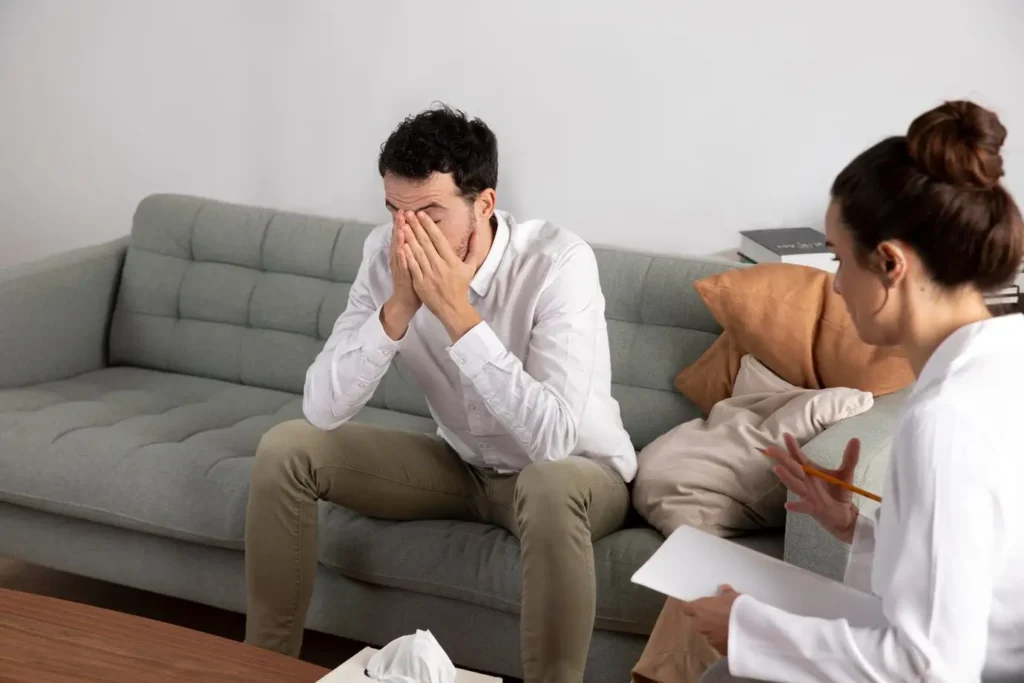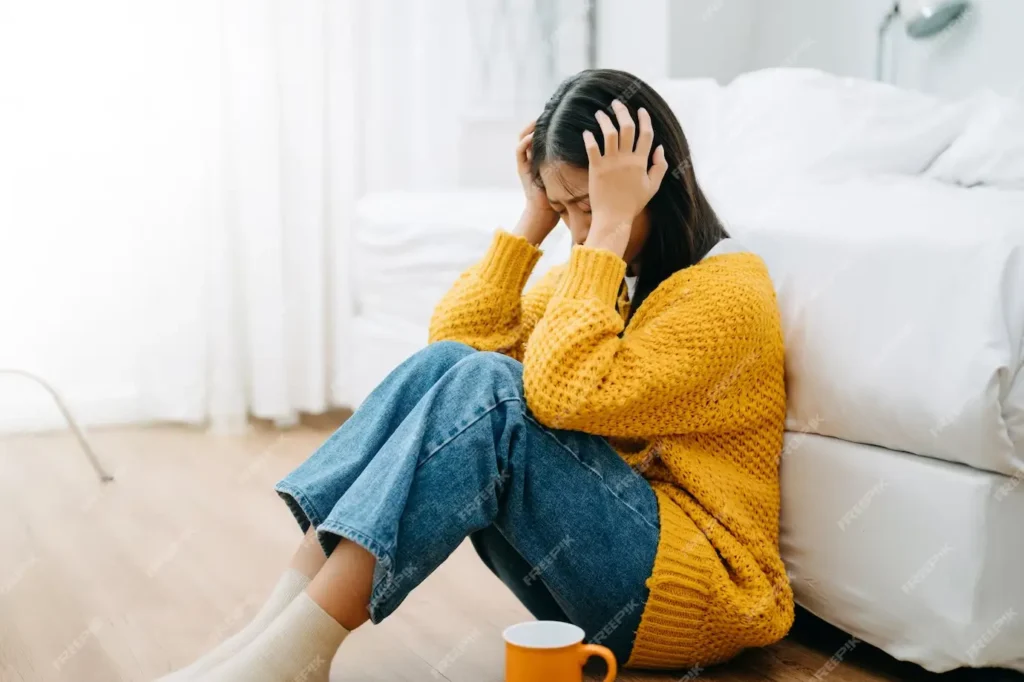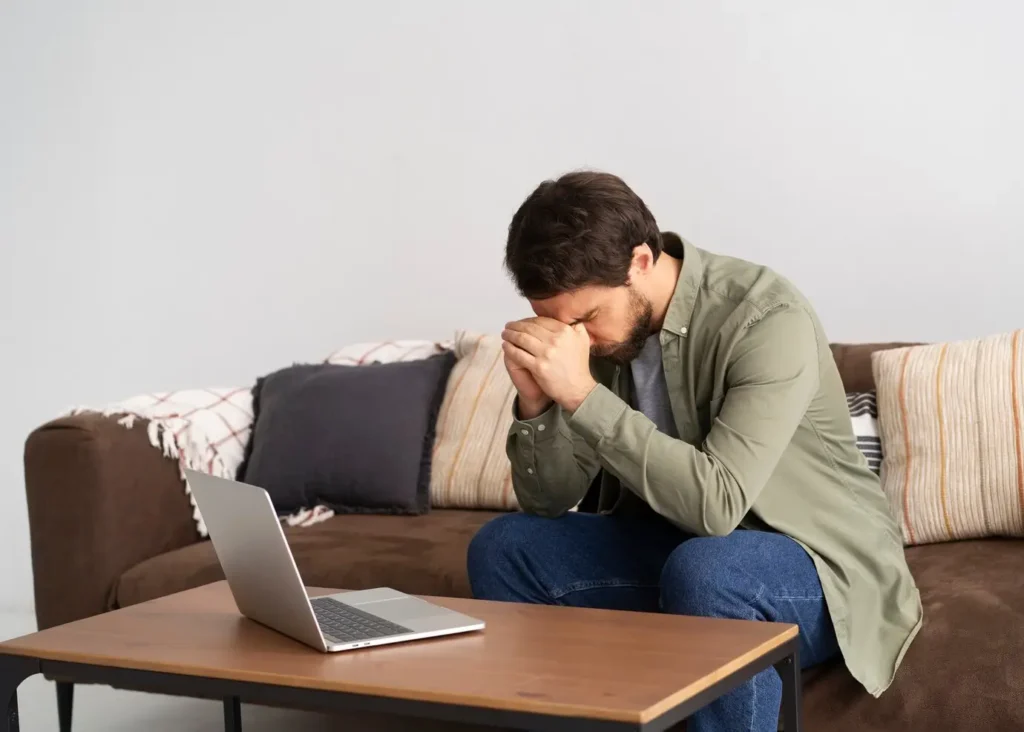5 techniques for coping with anxiety in the moment. What to Do When You Can’t Stop Worrying!
If you’re working to minimize and manage these anxiety symptoms, journaling, grounding techniques, moving your body (try a guided meditation), and meditation are a few ways to do so.
Stress is the body’s reaction to a real or perceived threat. Anxiety is a byproduct of the stress response and a perfectly normal thing that every human will feel sometimes.
Repeated activation of the stress response can take anxiety from a “once in a while” annoyance to a chronic condition.
Anxiety disorder — a catch-all for a group of mental health disorders that are closely related yet have slightly different symptoms and causes, all of which center around anxiety.
It might not be as easy to get that under control long-term, but there are specific techniques you must learn before you can hope to manage your anxiety, whether it’s chronic or intense.

5 methods for coping with anxiety at the moment
These suggestions may help you find relief from anxiety symptoms as they occur and, hopefully, before they escalate. They can take practice, but these can be powerful tools for anxiety.
Doubt your thinking
Unhelpful thoughts can lodge in your head and distort your perception and understanding of a situation. Asked what the basis might be, he said that it could include thinking such as negative self-talk and cognitive distortions.
When you feel the anxiety start to rise, it is one of the times when it is helpful to have strategies. One way to do this is to question your thinking, asking yourself what a fact is and what an assumption or emotional reaction is based on your assumptions.
Learn more about changing negative thinking through cognitive restructuring.
Practice focused, deep breathing
Deep breaths: During practical training, concentrate on slow and deep breathing.
Deep breathing exercises can be used as a way for you to cope with acute anxiety.
Experiment with 4-count inhaled breaths and 4-count exhaled breaths for 5 minutes. This kind of breathing will slow your heart rate, and this, in turn, can help you come to calm.
Another breathing pattern that is popular for immediate anxiety release is the 4-7-8 technique.
Find eight breathing exercises for controlling anxiety.
Use aromatherapy
There is some evidence that aromatherapy can reduce anxiety in certain conditions. Practitioners and proponents of aromatherapy claim there are benefits to the practice.
You can have it in essential oil form, incense, a candle in your office, or the oil in your bedroom, etc. Natural scents such as lavender, chamomile, and sandalwood can be comforting to the olfactory nerves and help usher in calm quickly.
Move more and exercise.
The stress response includes an increase in certain hormones, including cortisol. It is no secret that physical activities have a variety of advantages, even hormone balancing.
Getting out of your head by paying attention to physical sensations and your body, even momentarily, also relieves anxiety.
Meditation and low-impact exercises, such as brisk walking, yoga, and tai chi, are helpful and can help you soothe stress and anxiety. Even small physical activity can lift your mood. Trusted Source and clear your mind. For instance, perform squats, push-ups, or jumping jacks for 30 to 60 seconds.
Learn more about how exercise helps your mental health.
Use grounding techniques
Like physical activity, grounding techniques enable you to experience physical sensations, which can distract you from the stressor.
One example of a grounding technique is the 333 rule. That involves taking a few minutes to name three things you can see, three sounds you can hear, and three things you can touch. It will work to the extent that you forget your troubles. That momentary distraction is worth it, even if you must borrow an hour from tomorrow’s troubles to have it.
4. Some of us have solved each symptom in turn as if we had figured out their order—the transparent film of the mind, an outlet where the excess induces a behavior. Could you do what you can? It has service hours. Money, too, I’ve heard. Label guilt and wishfulness alike, so guilt has a new task, and wishfulness is a new language. It is impossible to be bored; doing as much as possible is necessary. Try spending at least one minute on each thing for every sensation you can see, hear, or touch before moving on to the next.

6 ways to deal with anxiety long-term
If you are struggling with anxiety that disrupts your life, consider meeting with a mental health care professional. They’ll be able to determine what’s stressing you and help you form a game plan that works for your long-term goals and lifestyle.
Some of these anxiety management strategies may also be recommended by a mental health care provider that you can practice with them or on your own.
Learn to recognize and cope with specific triggers
Some of your triggers or stressors may be apparent, while others may not. You might have a general sense of apprehension but not know why.
Some causes of anxiety are as follows:
- work deadlines or changes
- relationship conflict
- withdrawal from drugs or some medicines
- Adverse effects of some drugs
- history of negative previous experience
- past trauma that caused hypervigilance
- pain and other chronic health symptoms
- caffeine intake
- tobacco use
Triggers are subjective and individual. What one person is anxious about may not affect the next person. That’s why it’s so crucial to be able to recognize situations that can serve as triggers for your anxiety.
Learn more about what causes anxiety.
Learn more about medications
If you use medications, ask the healthcare provider who prescribed them whether you might experience anxiety as a result of taking them. If you stop using medications, you may experience feelings of anxiety caused by withdrawal or some other physical reaction. Having this talk with a physician can plant you on the right path to uncover what is causing you anxiety and what to do about it.
On the other hand, if you ever feel like you’re dealing with such severe symptoms of anxiety that it’s getting in the way of working, going to school, relationships, or life in general, it may be a good idea to talk to a medical professional about whether medication can play a role in your treatment.
Some types of anxiety medications include:
- SSRIS (selective serotonin reuptake inhibitors)
- Drugs such as serotonin and norepinephrine reuptake inhibitors (SNRIs)
- benzodiazepines
- tricyclic antidepressants
- Read more about anxiety drugs
- Practice daily meditation

Practice daily meditation
Practicing mindful meditation daily can also help train your brain to handle anxious thoughts when they pop up. Sometimes, it might help you avoid anxiety entirely by dampening the anxiety response to known stressors.
If you have trouble sitting still and focusing, you can experiment with walking meditation or yoga. Guided imagery could also assist in your anxiety control.
Keep a journal
Keep a daily journal of your thoughts and emotions so that you can pinpoint the triggers and document what coping strategies work the best. Many people even find the very act of writing down their thoughts to be soothing.
And long-term journaling can boost your health and wellness, too. A small study from 2018 (Trusted Source) indicates that routine, emotion-led journaling may reduce anxiety, depression, and distress.
Try to socialize more.
Everybody is different — and some people have social anxiety — but spending time with best friends and loved ones can help prevent and manage symptoms of anxiety.
Socializing can reduce anxiety, promote laughter and camaraderie, and reduce feelings of isolation.
“Being connected with others through social activities and enjoyable and rewarding social networks — in person is ideal, but also through technology — is a way to become resilient to stress in the long run,” researchTrusted Source has demonstrated.
Here’s how one talk with friends a day could help your mental health.
Stay active
Exercise may help you manage anxiety. However, the power of activity is not only instantaneous; regular doing is a cumulative power that may become enduring. Benefits are restful sleep, curbed appetite, mental sharpness, and simply feeling better.
Research suggests that exercise, in particular, can have enduring beneficial effects in preventing and managing anxiety.
Summary
Symptoms of anxiety can complicate navigating life. A variety of coping tools can help to both get these symptoms under control at the moment and also keep your anxiety from escalating over time.
If you suffer from intense anxiety, connecting with a mental health provider may help you uncover what could be behind your feelings and develop action plans to enhance your life.



